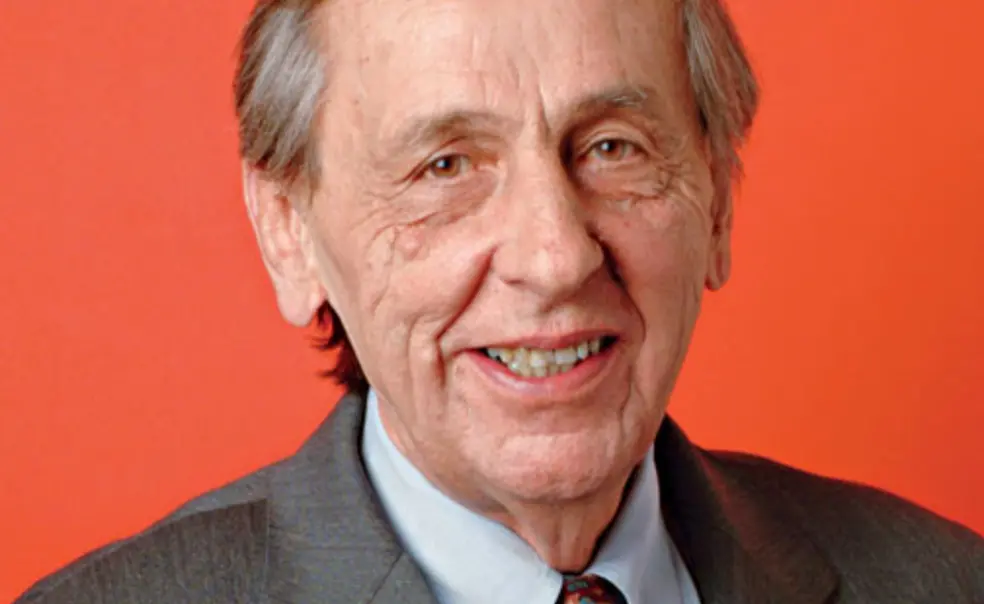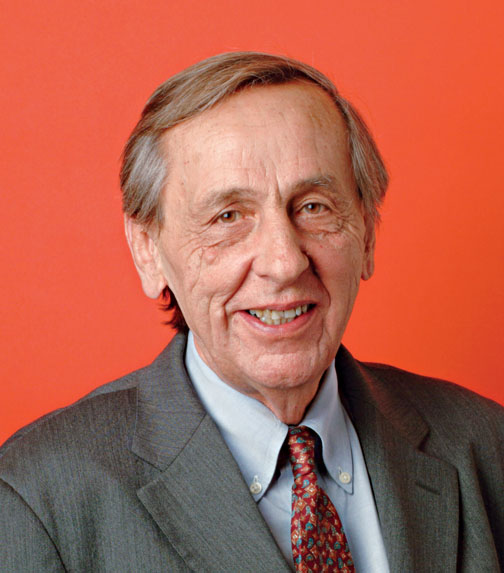A moment with ... William Greider '58
Over a 50-year career that has run from The Washington Post to Rolling Stone and The Nation, where he currently is national affairs correspondent, William Greider ’58 has been a persistent and incisive critic of government. His previous books have addressed topics including globalization, military spending, and the role of institutions like Congress and the Federal Reserve. Greider discussed the state of the country and his new book, Come Home, America (Rodale), with PAW.
The title of your new book comes from a line in George McGovern’s speech accepting the Democratic presidential nomination in 1972. Why did you choose that phrase?
McGovern actually got the phrase from Martin Luther King Jr., but they both used it to mean the same thing ... to come home from misadventures in foreign lands that are costly and in some ways immoral, but also to come home to our values as a country. That is what we need to do now. I recognize that to people who remember McGovern, the phrase has a negative resonance, but that’s OK with me. I think it’s time for us to throw off a lot of baggage from the past and change the way we approach the world and ourselves.
What should America’s role in the world be?
We should be a leader, but also a collaborator and an agent that holds up certain values for others to recognize and honor. That’s a lot different from saying that we have to make sure the Middle East turns into little democracies or try to settle the tribal warfare in Pakistan and Afghanistan. I am not an isolationist, just as McGovern and King were not isolationists. But I think it’s nuts for Americans to assume that they have either the right or the capability to go around the world remaking societies in the name of democracy.
Is the financial crisis an opportunity to make changes to our economic system?
It’s not clear if the governing elites will attempt that or whether they will try to fix mistakes without tampering with the structure of our system. That’s why people at large need to step up and intrude on the usual political decision-making.
How optimistic are you about the new administration?
I can find things to quarrel with, but on the whole it’s amazing what President Obama has taken on. He is reassessing our failed policy toward Cuba. He has taken on the defense budget. He has begun a new approach toward the Muslim world. These things imply a substantial adjustment in our governing policy. Whether he can follow through we don’t know, but I give him credit so far for trying.
What has been President Obama’s biggest mistake?
He is putting himself on the wrong side of history by trying to restore Wall Street. It’s clear that he and his advisers think that if you just pump enough capital into that handful of financial firms and banks, we can return to normal. I think every element of that is false.
Was your political philosophy shaped at Princeton?
Not at all. I grew up a conservative Republican in the Robert Taft mold. I majored in English and spent most of my energy and time at The Daily Princetonian. What changed me was after graduation, when I went out as a reporter and quickly began to experience the broader world. That led me to appreciate things I had once despised, such as the New Deal and liberal economics. But at the same time I was changing my mind about these things, liberalism was beginning to collapse. Right-wing politics were rising just at the time I was moving away from them.
You served on the Prince with Robert Caro ’57, R.W. Apple ’57, and others who went on to outstanding careers in journalism. What was that like?
It was an odd moment. People at that time were attracted to the romantic ideal of being a reporter, as opposed to going to business school and doing something responsible with your life. At least I was.
Are college students today apathetic?
I don’t think so. The thing about young people that I love is that they don’t know what’s impossible. They don’t pretend to know everything, and yet they are open to the possibility that the future could be improved by their efforts. I’m fundamentally an optimist about the country, and young people are a big part of that.
You’re at an age when most of your peers have retired. Do you think about slowing down?
I arranged my career so I wouldn’t have a pension. That helps. I never even plotted retirement. I keep moving from one thing to the next. I will say that it’s a lot harder to write a book at my age than it was at 30, but if I weren’t at The Nation I’d be doing something else.
— Interview conducted and condensed by Mark F. Bernstein ’83













No responses yet